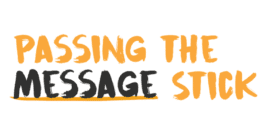Election mania: What should I do during caretaker?

21 September 2020 at 4:24 pm
Neil Pharaoh explains what caretaker means for social purpose organisations and what opportunities exist during this time.
With a number of state and territory elections happening over the coming few months, now is the perfect time to turn your attention to “caretaker mode” – what it means, how it impacts you, and what can or can’t be done during this period. The ACT election is on 17 October, Queensland’s is on 31 October, and WA rounds us out on 13 March 2021. (For those psephologists out there, ACT entered caretaker on 11 September; Queensland will begin on 6 October).
Firstly, what does caretaker mean?
Caretaker is the period after the Crown (i.e. governor general or governor) has dissolved the lower house of parliament in preparation for an election. The government prior to caretaker becomes known as the “caretaker government” and is expected to conduct itself within a series of well-defined conventions. While these conventions are not legally binding, generally they are followed by both sides of politics and include not making major policy decisions (except in consultation with the opposition), and no major public appointments, contracts, or negotiations. Of important note, the public service switches to “neutral”, meaning it starts investigating and reporting for the benefit of the “electorate at large”, and switches off “public distractions” such as community service announcements, social media and anything that will “distract” from the election. Different states and territories have slightly different rules; however, all conceptually are similar to those mentioned.
So what does caretaker mean for me?
Many social purpose organisations have government funding commitments; these typically cannot be renewed unless they fall within “the ordinary scope of government”, so large cheques are sadly not common in caretaker. If your agreements expire during this period, they may often be renewed for a short period of time until a new government is formed – usually high level with no big commitments, no changes of direction, and no announcements from government. While election promises come thick and fast during this time, they are not “government” announcements.
What opportunities exist for me during caretaker mode?
If you have built a strong relationship with the public service, caretaker is your time to shine. Public servants will be preparing Red and Blue books for the potential incoming government, including costings, insights, reports, and operational information. Public servants may pitch new or long-standing ideas for potential changes in minister or colour of government, and are usually very open to briefings, research, reports, and anything which helps better inform, educate, or engage with public servants.
Caretaker is a great time to undertake activities like:
- provide more detailed departmental briefings;
- offer to assist or engage with costings, impact or outcome measures;
- re-circulate any ideas you have had which the department liked but didn’t meet the colour or flavour of the minister at the time; and
- remember the role of the central agencies – treasury, finance, premiers and prime minister – in the whole of government processes.
Outside of the government departments, caretaker mode is when all your planning, engagement and activities in preparation for the election are best executed – including working with candidates who currently do not have a seat, mapping your key supporters and detractors, and of course sending some love to your favourite politicians and political candidates as they approach election day.
It’s important to remember that through this time, a number of protocols exist around having MPs in attendance at events. While these vary in each jurisdiction, typically the member and major party alternative are treated more so as equals during caretaker, and accordingly, a more balanced approach is taken in communications. You need to be nuanced and ensure that if a candidate or MP engages with you in any way, then you try and do the same sort of engagement with their opposite in the seat – remembering if they both attend the same event, tradition dictates the current elected MP is introduced before any candidate, and speaks first if they are both on a run sheet.
One more thing that cannot be stressed enough: If your plan is to engage with MPs or candidates for the first time during caretaker, then you have left it far too late. Good MPs and candidates will really only be doing two things during caretaker – media, and voter contact. Most stakeholder meetings are frowned upon during this time, as good MPs and candidates should preferably be working the phones, door knocking, or focused on every vote they need locally.
Finally, good engagement with government is a mid- to long-term activity; today’s candidates are tomorrow’s members, next week’s ministers and premiers, and next month’s feather dusters. Asking for something only when someone is a minister or in a position of power purely shows how transactional you want the relationship to be, and won’t reflect upon you favourably – however well you may wrap up your attempt.
Going into caretaker with a plan, relationships and stakeholders mapped, insights to provide and value to be added, is the best way for you to get a seat at the table, no matter the outcome of the election.
About the author: Neil Pharaoh has spent most of his voluntary and professional life in and around social purpose organisations, government, public policy and advocacy. Neil has been behind many leading social policy and advocacy campaigns on gender rights, equality, medical research and education, and ran for Parliament in Victoria in 2014 and 2018. He regularly runs workshops and advocacy sessions and advises leading social purpose organisations on their government engagement strategy and systems. @neilpharaoh on LinkedIn, Twitter, Instagram and Facebook.
Happenings on the hill is a fortnightly column focusing on all things politics, policy, campaigns and advocacy. Stay tuned for updates around political trends and elections, lobbying and advocacy news, and hints, tips and ideas on government engagement that are specifically written for the social purpose/for-purpose sector.
If you have any ideas, suggestions, tips or questions, please feel free to email Neil Pharaoh at neil@neilpharaoh.com.au or reach out to him via social media at LinkedIn, Twitter, Instagram and Facebook @neilpharaoh.







